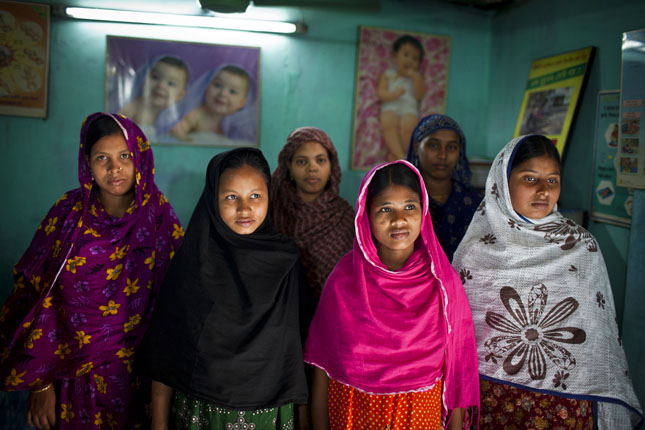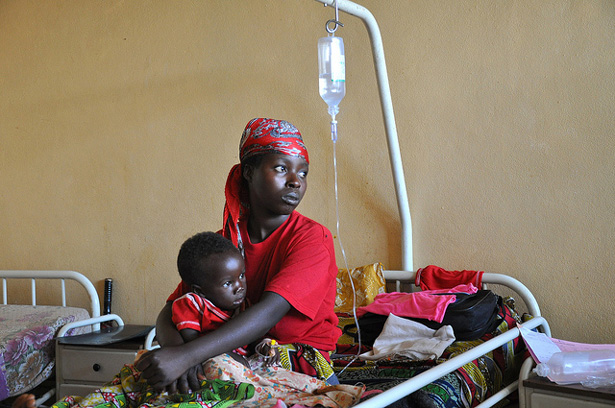-
The Urban Disadvantage: Rethinking Maternal and Newborn Health Priorities
›
Urbanization is changing the face of poverty and marginalization, and the maternal and newborn health field needs to change too, said a panel of experts at the Wilson Center on January 24.
-
After Mexico City and Before Copenhagen: Keeping Our Promise to Mothers and Newborns
›
Last October, on the heels of the UN General Assembly agreeing to the Sustainable Development Goals, the global health community met in Mexico City to discuss strategy for achieving the “grand convergence”: finally bridging the gap between maternal and newborn health in rich and poor countries. [Video Below]
-
Malaria and Maternal Health: Treating Pregnant Women Reveals Need for Integration
›
Ten years ago, a study was conducted in Mozambique to determine the impact of a new medicine for pregnant women with malaria. Over 1,000 women participated in a controlled trial of intermittent preventative treatment with sulphadoxine-pyrimethamine – half received a placebo, the other half received the actual drug. All were given an insecticide-treated net.
-
Quality and Quanitity: The State of the World’s Midwifery in 2011
›Each year, 350,000 women die while pregnant or giving birth, as many as two million newborns die within the first 24 hours of life, and there are 2.6 million stillbirths. Sadly, the majority of these deaths could be prevented if poor and marginalized women in developing countries had access to adequate health facilities and qualified health professionals. In fact, according to the new UNFPA report, State of the World’s Midwifery 2011: Delivering Health, Saving Lives, just doubling the current number of midwives in the 58 countries highlighted in the report could avert 21 percent of maternal, fetal, and newborn deaths.Launched last week, the report is the first of its kind, using new data from 58 low-income countries with high burdens of maternal and neonatal mortality to highlight the challenges and opportunities for developing an effective midwifery workforce.
“Developing quality midwifery services should be an essential component of all strategies aimed at improving maternal and newborn health,” write the authors of the report. Qualified midwives ensure a continuum of essential care throughout pregnancy and birth, and midwives can help facilitate referrals of mothers and newborns to hospitals or specialists when needed:Unless an additional 112,000 midwives are trained, deployed, and retained in supportive environments, 38 of 58 countries surveyed might not met their target to achieve 95 per cent coverage of births by skilled attendants by 2015, as required by Millennium Development Goal 5.
There is a total shortage of 350,000 skilled midwives globally, with some countries, like Chad and Haiti, needing a tenfold increase to match demand, according to the report. But quantity isn’t the only issue; there has also been an insufficient focus on quality of care. Additionally, most countries do not have the capacity to accurately measure the number of practicing midwives, and national policies focusing on maternal and newborn health services often do not view midwifery services as a priority.
To help overcome these challenges, the report outlines a number of “bold steps” to be taken by governments, regulatory bodies, schools, professional associations, NGOs, and donor agencies in order to maximize the impact of investments, improve mutual accountability, and strengthen the midwifery workforce and services. Of course, the needs of each country are unique, and the report ends with individual country profiles that highlight country-specific maternal and neonatal health indicators.
While this report does much to highlight the critical importance of midwives in promoting the health and survival of mothers and newborns, real impact will only come when governments, communities, civil society, and development partners work together to implement these recommendations.
Sources: UNFPA.
Video Credit: UNFPA.
Showing posts from category Stillbirth.






